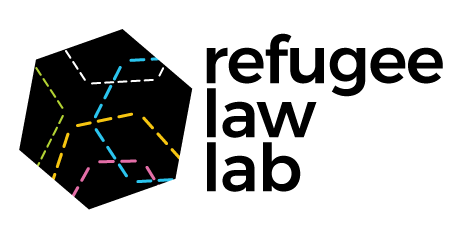
Utilizing the power of technology, an associate professor at Osgoode Hall Law School is developing a new online app to assist lawyers in gaining insight into the refugee decision-making process and to ensure fairness.
By Elaine Smith
Lawyers will soon have access to an online app that will help them prepare for refugee hearings in a more informed, focused manner, thanks to the work of the Refugee Law Lab at York University.
The lab is a new offshoot of the Centre for Refugee Studies (CRS), one of the 25 organized research units supported by the Office of the Vice-President Research & Innovation. Founded in 1988, CRS is an interdisciplinary research community devoted to advancing the well-being of refugees and other displaced people through research, education and policy engagement.

Sean Rehaag, an associate professor at Osgoode Hall Law School and the current CRS director, established the Refugee Law Lab to explore new legal technologies and their impacts on refugees and other populations on the move. The lab uses a human rights lens to critically assess the use of technology in the migration space and to build human rights enhancing technologies. Its work is funded through the Social Sciences and Humanities Research Council of Canada Insight Grant program.
“Governments are increasingly using technology to control cross-border movements. Consider, for example, biometrics, drones and automated immigration decision-making using artificial intelligence,” Rehaag says. “But this technology poses real risks. Unfairness can be baked in through biased data. Legal recourses can be difficult if non-transparent algorithms make mistakes. States may use the tech to control movement in ways that undermine the right to seek asylum.
“I came to the intersection of migration law and technology somewhat accidentally. My main area of interest is in understanding outcomes in Canada’s refugee determination system and considering what factors might account for those outcomes. Does the lawyer matter? Does the decision-maker matter? What happens to claimants from different countries?” he says.
Rehaag followed that interest by learning to code so he could create tools to amass and analyze thousands of refugee claim determinations and gain insight into the process. Now he is building a free legal analytics app for use by refugee lawyers and others interested in the refugee decision-making process, an endeavour funded by the Law Foundation of Ontario.
The work required to create the new app will automate much of the data gathering that Rehaag has been doing manually for years. The app itself will help lawyers gain insights about the decision-makers who will be hearing their clients’ refugee claims and will present data in an easily understandable visual format.

“As a lawyer using the app, you’ll be able to adopt an individualized approach,” says Rehaag. “You can adjust your strategy when you appear before a particular decision-maker. Does your client have a chance with them, or should you try to set up an appeal? Based on patterns in the decision maker’s past decisions, what arguments are they likely to find most persuasive?”
He adds: “Currently, much of the cutting-edge tech being developed in the migration law space enhances the power of governments, not people on the move. Legal tech is usually created by corporations for clients with deep pockets and that’s not refugees. At the Refugee Law Lab, we want to show that legal tech can be used for good, not just for profit. We want to showcase a model where academics and organizations that fund social justice work come together to create open source, open access new legal technologies that are human-rights enhancing.”
Rehaag hopes to launch the app later this year. “For me, the key is whether my work enhances the rights of refugees.”
